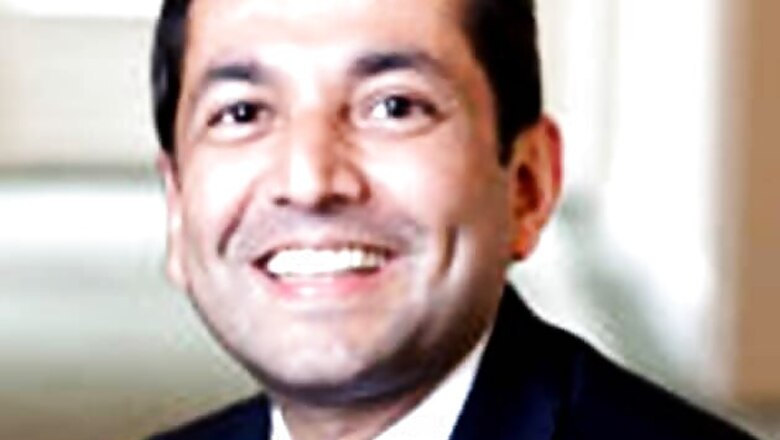
views
Sid Yog
Age: 39
Education: Harvard Business School
Career: Was part of the founding team of CB Richard Ellis in India; moved to Hong Kong with CBRE; founded Xander in 2005
In August 2005, Siddharth (Sid) Yog, a Class of 2004 Harvard Business School graduate, managed to raise $120 million for his realty fund. It looked like an achievement then. But, in hindsight, many young kids raised a lot of money to invest in India because India was hot.
Six months after the government opened up Indian real estate to foreign investment in 2005, 160 funds set up shop. As they went about quickly deploying their money, there was too much money chasing very few quality projects. The majority of the funds then shut shop, leaving behind irate investors who haven't been able to recover their principal. It is in this context that the magnitude of Sid Yog's achievements can be understood.
Xander, the fund Yog founded eight years ago, rubs shoulders with the likes of HDFC, Kotak and Indiareit as among the few who have returned investors' money: Yog has already returned more than the $120 million he had raised. The good part is that the mark-to-market value of the investments [their current value] Xander hasn't sold yet is $113 million, according to Cambridge Research Associates, an independent Boston-based research firm. That means he has almost doubled investors' money. At these values, the internal rate of return (IRR)-benchmark to judge the attractiveness of an investment-of Xander's portfolio is 41 per cent. (The 2005 benchmark for global real estate funds, according to Cambridge Associates, has returned minus 3 percent.)
Admittedly, it will be hard maintaining this performance over other funds. Still, what makes this a standout performance is that it is the sole foreign realty fund from about 160 set up in India that hasn't lost its shirt. Meanwhile, its capital under management has swelled to $2 billion, making it by far the largest realty fund in the country.
So how did the unheralded Yog manage to pull it off? For starters, he didn't jump the gun. For most part of 2005 and 2006, Yog just did not invest.
"Property prices were just too high and we couldn't see value in any single transaction," he says. He waited and in May 2006, Xander put money in Maker Maxity, a business park in Mumbai's Bandra-Kurla business district. Xander picked up a 20 percent stake. Six years on, at Rs 400 to Rs 425 per square foot, the office block is rumoured to have the highest rentals in Mumbai. People with direct knowledge say Xander's investment has more than doubled.
Those who know Yog and the firm say its success lies in the fact that it's never been swayed by the hype of rising real estate prices in Indian metros. "We do not invest based on growth projections. We invest based on the here and now, and in the real estate sphere we invest on the basis of how the real estate is going to perform," says Yog.
Along the way, Xander also made some contrarian bets. For instance, it has invested in hotels, something most realty funds shy away from as it can take as much as seven years to exit such an investment. According to media reports, Xander was one of the bidders for Goldman Sachs' stake in the Four Seasons Hotel in Bangalore.
And the firm is even more patient with its new venture, Virtuous Retail, in the retail space. That's a bet that could take well over a decade to pan out. Some in the industry are questioning Yog's wisdom on the bet. "Retail is a tough nut to crack and I'm not sure how this one will work out for Xander," says an industry tracker.
Taking a chance
As Yog concedes, most interesting things in life happen by chance. It was in March 2005 that he found himself in India for getting a visa. Up until then, Yog had spent nine years in the real estate business. He'd cut his teeth at Richard Ellis (as CBRE was then called) and built their consulting and valuation practice in India. Later, he moved to Hong Kong to set up the same business in Asia. Anshuman Magazine, chief executive of CBRE's Indian operations, re-members Yog as extremely bright but also very aggressive. "That certainly rubbed some people the wrong way, but one couldn't fault him with his work," he says.
In 2002, Yog found himself at Harvard Business School and a bit out of place. He was the only one with a real estate background and was struggling to find peers. That's when he walked into the office of Arthur I Segel, the Poorvu Family Professor of Management Practice in the Finance Department of HBS. It was a meeting that would eventually change the course of Yog's life.
Segel had spent his life running a real estate firm and the two got talking. Before long, Yog had done a bunch of research for him and the two had worked on a case study together. "I have had the privilege to teach over 3,000 students and Siddharth is one of the smartest I have ever had," says Segel.
In March 2005, Segel was willing to put his money where his mouth is. He had been approached by Lord Jacob Rothschild (a top investment banker and member of the Rothschild family) to invest money in India. But Segel suggested that they should help Yog start a fund instead.
"At first I thought Siddharth, at age 32, was too young to manage other people's money, but then I realised that was the age I started at," he says with a guffaw. And with that, Xander was born. It had among its initial backers some of the world's savviest investors-besides Rothschild, it had the Getty family and Baupost, a hedge fund run by the legendary investor Seth Klarman.
Yog got down to work in March itself, aiming to create a firm that was global in outlook yet entrepreneurial in nature (something he'd found lacking at Bain, where he was working immediately after graduating from Harvard). Most importantly, it had to have a track record of consistent returns over a long period of time, says Rohan Sikri, a partner at Xander who worked with Yog during his CBRE days.
From their initial days, Yog and Sikri, with their years in the industry, knew that if they were to succeed, research would play a key role. Over the years, it's Xander's research that has differentiated it from the rest.
Own your insight
Ask someone how much grade-A office space there is in the country and it's hard to get a precise answer. Ask someone how much residential space lies vacant and again the answer varies. Xander went about setting up its own research team that is now a dozen members strong and is really the organisation's backbone. Each of the seven real estate experts that Forbes India spoke to gave high marks to Xander's research team. "Their investment proposals are meticulously researched before they are presented to the investment committee," said one of them.
This research edge allowed Xander to invest in assets outside the two traditional favourites of real estate funds-office and residential space. Soon, Xander had made investments as diverse as a hotel in Rajasthan, a toll road in Faridabad and a warehouse in Chennai, which was leased out to DHL.
Most telling is its investment in a mixed-use project in Mumbai. The property had come fairly far along in the construction process and Xander was able to complete it. With the property complete, Xander sold 49 per cent to CalPERS, the California government employee pension fund, and recovered more than the principal on the first fund from just that one investment.
Now, in real estate investing, a leverage of 1:1 is generally considered prudent, which means you should borrow as much as you invest on your own. Baupost, one of Xander's earliest investors, states that it doesn't use leverage except in real estate investments. Xander decided to eschew this practice. Its second fund raised in 2006 has an IRR of 2 per cent while the global benchmark is minus 8 per cent.
If not equity, debt
After succeeding with his initial deals, Yog realised that, unlike in the West, in India, promoters were extremely wary of parting with equity. They wouldn't baulk at raising money through high interest rates but when it came to parting with equity they often declined and went over to the next suitor.
In order to cater to this demand, Xander Credit, a non-banking finance arm, was set up. But it is with Xander's third division that Yog has taken his boldest bet-one that he admits will take time to bear fruit. Virtuous Retail founded in 2006 has an equity of $600 million (Rs 3,200 crore)-more than a fourth of his paid-up capital. It was founded with the express mandate to build and lease high quality retail space in India.
Indian retail so far has proven to be incredibly hard to make money in. Among the 650 malls in the country, only a handful have broken even. The country is dotted with ghost malls where not even a single tenant has set up shop. Some mall developers sold shops instead of leasing them and that made running the mall impossible as different tenants could never agree on a common strategy.
Yog, however, saw the opportunity differently and said that if retail was to grow in the next decade it would require quality retail space.
One of Xander's boldest bets has been in the city of Surat, where Virtuous Retail plans to inaugurate a 600,000 sq feet mall early this year. With a population of six million, the company is making a big bet on its spending power. They've managed to tie up marquee tenants, from Hamleys to Westside and Shoppers Stop to Zara. Yog believes that malls have failed due to a lack of customer initiatives. So, in Surat, Xander plans to have regular events to get families to spend time in the mall. It is a strategy that remains untested as they might find more hangers-on than spenders.
In the next decade, Virtuous Retail plans to have nine malls around the country and Yog admits it will take around a decade for this project to bear fruit. If he manages to execute correctly and list it as an REIT (real estate investment trust), as and when REITs are allowed in India, this pie could be worth billions, according to a rival real estate fund manager. "It is a sound bet and shows that his investors believe in him," he adds.
In the last six years, Yog has come a long way in building a truly international real estate firm. With a staff of 80 and offices in Mumbai, Delhi, London, Singapore and Mauritius, the firm is on a sound footing.
Yog, who lives out of a suitcase and travels relentlessly, says he's got most of his own money tied up in the fund. He's persuading other staff members to do the same. "That is the only way to show you have confidence in what you are doing," he says. Ashish Dhawan, formerly with ChrysCapital, describes him as affable, articulate and thoughtful. Recently, Yog made a $11.01 million donation to Harvard University. He's also put in money to start, along with Dhawan, a liberal arts university near Delhi. "Once he knew it was for a good cause, he forked out the money," Dhawan says.
Next on his agenda: To make investments outside India. "Going by his present performance, I'd be happy to give him money for as long as he invests," says a prominent Xander investor.


















Comments
0 comment